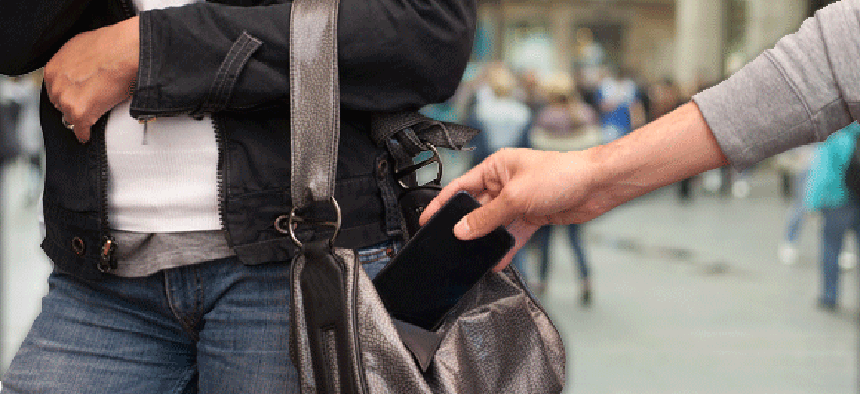Apple's new iPhone lock could help with mobile security

The feature, called Activation Lock and expected with iOS 7 this fall, could reduce "Apple picking" while giving managers another security tool.
The mobile devices finding their way into agencies -- whether agency-issued or BYOD -- entail a lot of freedom of choice. The list of approved smart phones and tablets is large and includes the Apple iPhone in many agencies.
But using an iPhone can put users at risk, not because of some security flaw, but simply because it’s a hot phone right now, and the most prone to being stolen. Theft of iPhones even has a name. It's called “Apple picking,” with brazen thieves are stealing them right out of people's hands, according to USA Today. And victims who resist sometimes find that the thieves are willing to defend their ill-gotten gains with violence.
In fact, the deputy police commissioner for New York City says that, although overall crime rates in the city have gone up 3 percent overall this year, if Apple picking is factored out, crime rates have actually dropped, CNN reported. So it's a pretty big problem.
To combat the thefts, Apple has announced a feature, Activation Lock, that locks down iPhones and iPads, making them much less attractive to thieves. Not quite a kill switch, this new feature was touted as part of Apple's presentation at the Worldwide Developer's Conference this week.
It would require an Apple ID and password before the "Find My iPhone" program (which helps people locate a lost phone from a second iOS device) could be turned off or before any data is erased. So if a thief snatches an iPhone, the device would be able to broadcast its position constantly once it's reported stolen or a user scans for it, while preventing any data from being erased. The thief would be carrying around a phone that could direct police, or angry victims, right to him with no way to turn it off. You have to think that would cut down on its resale value.
Apple says this new feature will be part of iOS 7 when it rolls out this fall.
Once thieves realize that stealing an iPhone is a losing proposition, they probably will stop doing it, especially those who end up getting caught. Of course, that's if nobody figures out how to disable the new security feature. But even then, that skill level is likely going to be beyond what the average thief is capable of doing on short notice.
And if it does prove effective, it’s likely that other device makers will add a similar feature to their phones, giving agencies another security tool for managing mobile devices. Setting up remote lock/wipe capabilities is a recommended best practice for mobile devices used on the job, though employees might resist that approach when it comes to their own phones. Having a variation of that protection — in this case, preventing access while broadcasting its location — built in to a phone or tablet might just make things easier.





